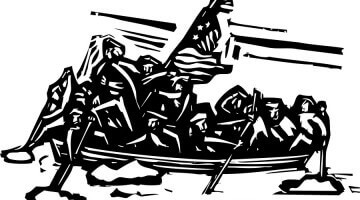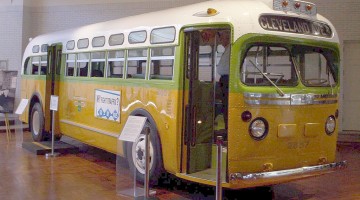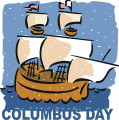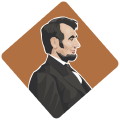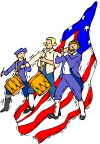Project Mercury (1959 – 1963) was the first manned American spaceflight program. With the success of its Mercury-Atlas 6 flight on February 20, 1962, the project achieved its goal of putting an American astronaut (John Glenn) into orbit around the …[Continue]
Washington Crosses the Delaware
During the American Revolutionary War, on the evening of December 25, 1776, General George Washington led 2,400 Continental Army soldiers across the very icy Delaware River to attack the pro-British Hessian troops camped in Trenton, New Jersey. Our collective memory …[Continue]
Montgomery Bus Boycott
On December 5, 1955 in Montgomery, Alabama, supporters of the Civil Rights Movement began a thirteen-month boycott against the city’s bus system as a protest against its policies of racial segregation. The boycott was lead by Reverend Martin Luther King, …[Continue]
Columbus: Hero or Villain?
In recent years, a variety of groups have argued that Christopher Columbus was responsible for genocide against Native Americans, and semantically, didn’t “discover” anything at all! Check out the following websites for arguments both for and against the celebration of …[Continue]
Freedom Riders
The Freedom Riders were approximately 400 black and white Americans who (at great personal risk) traveled on buses through the Deep South in violation of Jim Crow segregation laws, for six months starting May 4, 1961. Along the way, they …[Continue]
Abraham Lincoln
America’s sixteenth president, Abraham Lincoln (February 12, 1809 – April 15, 1865) is revered for ending slavery, and preserving the Union by winning the Civil War. But perhaps he is best known for his Gettysburg Address of 1863 and being …[Continue]
Paul Revere
Paul Revere (1735 – 1818) was an American patriot best known for riding on a borrowed horse from Boston to Lexington on April 18, 1775 to warn the colonists that British troops were approaching. The next day, when the British …[Continue]
Ellis Island
Today’s online field trip takes us to Ellis Island, which served as the portal to almost all American immigrants arriving between 1892 and 1954. Although some were turned away, 98 percent of those examined at Ellis Island were allowed into …[Continue]
Mayflower Compact
Written in 1620 by the Mayflower passengers (who later were called Pilgrims), the Mayflower Compact was the first document of self-government in the colonies of the New World. Signed by all the adult male passengers of the Mayflower, it was …[Continue]
Colonial America
The colonial period of American history starts with the arrival of the first European settlers in the early seventeenth century, and continues until independence was declared in 1776. During this time, the settlers formed thirteen colonies along the Atlantic coast …[Continue]

